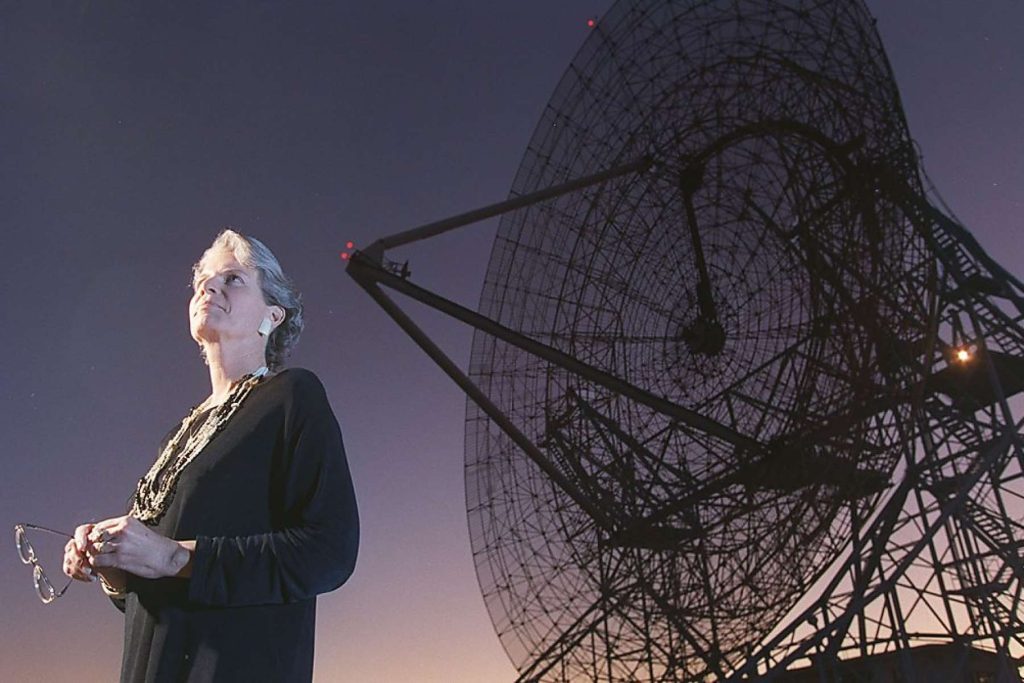Who discovered the most comets, identified the universe’s most common substance, and started the scientific search for extraterrestrial aliens? Women astronomers. Learn their stories.
Women make up only 15% of today’s astronomers, yet they have made some of our most important astronomical discoveries. Let’s hear the stories of three of those amazing women in Part 3 of the Name a Star series on female astronomers.
In the early 1970s, Vera Rubin was part of a team studying the rotation of spiral galaxies. To their surprise, they found that galaxies were rotating so fast that predictions showed they should break apart if the only thing holding them together was the gravity from their visible stars. Rubin and her collaborators hypothesized that some invisible glue — an unseen mass — must be at work. The group’s groundbreaking work provided the first direct evidence of the existence of invisible dark matter, that mysterious stuff that makes up most of the universe but gives off no energy or light.
Jill Tarter led the search for extraterrestrial life using radio astronomy. Tarter is the co-creator and former director of the Center for the Search for Extraterrestrial Intelligence (SETI). This nonprofit continues its search and education activities despite Congress refusing to fund this NASA project since 1993.
Famous astronomer and author Carl Sagan based the main character, Ellie Arroway, in his fictional novel, Contact, on Tarter. Jodie Foster played the role in the movie “Contact”.
Carolyn Shoemaker discovered more asteroids (500) and comets (32) than any other astronomer. She became famous in 1993 when she co-discovered Comet Shoemaker-Levy 9 with her husband Eugene and fellow astronomer David Levy. The comet was orbiting Jupiter in pieces. The next year, its 21 fragments smashed into Jupiter, wowing astronomers everywhere with a spectacular once-in-a-lifetime show.
Before the Jupiter impacts, a reporter asked her what would happen if all the comet’s fragments were to hit Earth instead. “We would all die,” she answered. The interviewer explained that this was for a children’s program, then posed the question again. Carolyn’s second answer: “We would all be very uncomfortable.”
Honor the woman in your life, by naming a star for her for Mothers Day.



